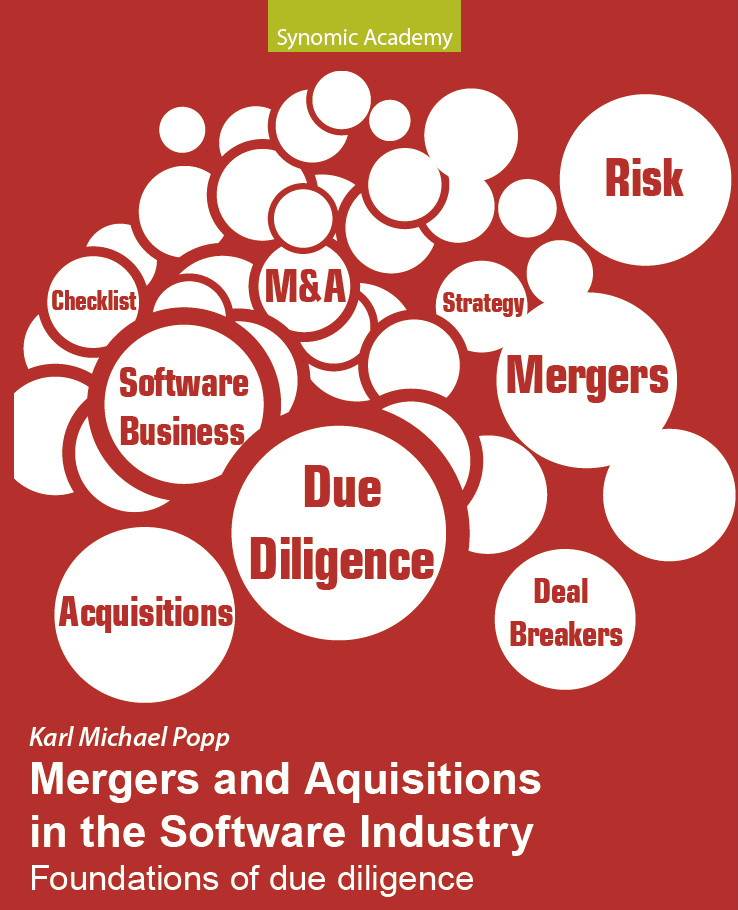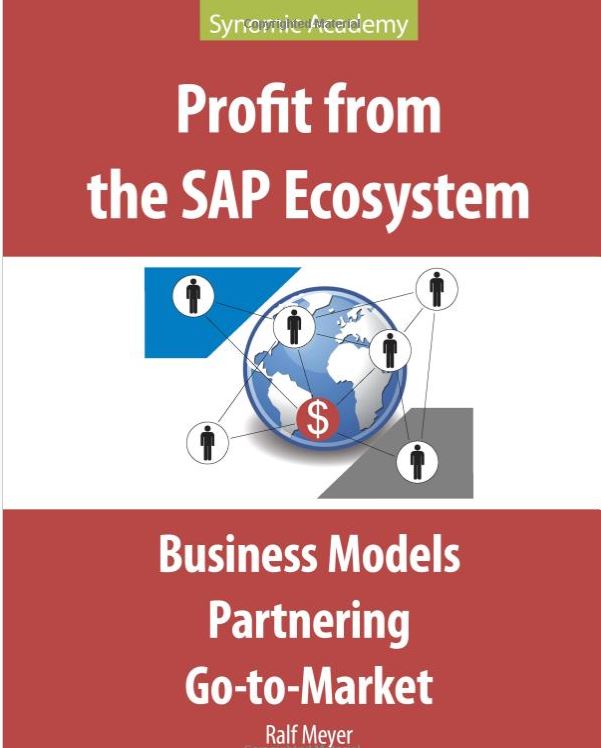Revenue Models For Aggregator Companies
Get into discussions with us at the European Workshop on software ecosystems
Get tickets here https://ewseco.squarespace.com/tickets
Introduction To Aggregator Companies
Aggregator companies are businesses that collect and organize information from various sources and present it to users in a simplified format. These companies have become increasingly popular in recent years due to the vast amount of data available on the internet. Aggregators offer a convenient way for users to access this information without having to search through multiple websites. However, with the rise of aggregator companies, there has been an ongoing debate about their revenue models. [Sources: 0, 1, 2, 3]
Many aggregator companies rely on advertising revenue, while others charge subscription fees or take a commission from sales made through their platform. In this article, we will explore the various revenue models used by aggregator companies and analyze their pros and cons. [Sources: 1, 4]
Early Revenue Models For Aggregator Companies
Early revenue models for aggregator companies were mainly focused on advertising and commission-based fees. Aggregators would earn revenue by charging a commission on transactions made through their platform or by displaying targeted advertisements to their users. However, these models faced challenges such as low user engagement and competition from other platforms. As aggregator companies grew, they began exploring new revenue streams such as subscription-based services and data analytics. [Sources: 5, 6, 7]
The shift towards subscription-based models allowed aggregators to generate more stable revenue streams while also providing additional benefits to their users. Today, many aggregator companies use a combination of these models to generate revenue and remain competitive in the market. [Sources: 8, 9]
Subscription-Based Revenue Model
The subscription-based revenue model is a popular approach for aggregator companies, especially those in the media and entertainment industries. Under this model, customers pay a regular fee to access content or services provided by the aggregator. The benefit of this model is that it provides a predictable source of revenue for the company, as well as a stable income stream for content providers. [Sources: 1, 10, 11]
However, it can be challenging to attract and retain subscribers in an increasingly crowded market. Aggregator companies must continually offer high-quality content and services to keep their subscribers engaged and willing to pay for their offerings over time. [Sources: 12, 13]
Advertising-Based Revenue Model
One of the most common revenue models for aggregator companies is the advertising-based model. This involves generating income through selling ad space on their platforms to businesses interested in reaching their audience. Aggregator companies with large user bases and high levels of engagement are particularly attractive to advertisers. These companies can offer targeted advertising options based on user data, allowing businesses to reach specific demographics. [Sources: 14, 15, 16, 17]
The success of this revenue model depends heavily on the company's ability to maintain and grow its user base, as well as its ability to provide valuable data insights to advertisers. However, there is a risk of alienating users if advertisements become too intrusive or disruptive to the user experience. [Sources: 18, 19]
Transaction-Based Revenue Model
The transaction-based revenue model is a popular approach used by aggregator companies to generate revenue. This model involves taking a percentage of each transaction made through the platform. For example, companies like Uber and Airbnb take a commission from each ride or booking made through their app. This model is effective because it aligns the interests of the aggregator company with those of its users - the more transactions that occur, the more revenue both parties generate. [Sources: 18, 20, 21, 22]
However, this model can be risky as it relies heavily on user activity and can be impacted by external factors such as economic downturns or changes in consumer behavior. [Sources: 23]
Affiliate-Based Revenue Model
The affiliate-based revenue model is a popular approach for aggregator companies to generate income. In this model, the aggregator partners with other businesses and receives a commission for each customer referred to them. For example, a travel aggregator may partner with airlines, hotels, and car rental companies and receive a commission for every booking made through their platform. This model benefits both the aggregator and the partnered businesses as it drives traffic and sales to their websites. [Sources: 1, 24, 25]
The success of this revenue model relies on the strength of partnerships formed by the aggregator company, making it crucial for them to choose reliable partners who align with their brand values. [Sources: 13]
Data-Driven Revenue Models For Aggregator Companies
Data-driven revenue models are becoming increasingly popular among aggregator companies. These models involve using consumer data to create targeted advertising campaigns for businesses, allowing them to reach their desired audience more effectively. By leveraging the vast amounts of data they collect from their users, aggregator companies can offer highly personalized and relevant advertising options to businesses. This not only generates revenue for the aggregator company but also provides value to both consumers and businesses by offering them tailored solutions that meet their needs. [Sources: 26, 27, 28, 29]
As data becomes more valuable in today's digital age, it's likely that we'll see more and more aggregator companies adopting these types of revenue models in the future. [Sources: 30]
Hybrid Revenue Models For Aggregator Companies
Hybrid revenue models for aggregator companies combine multiple sources of income to generate revenue. These models can include a mix of advertising, transaction fees, subscription fees, and commissions. For example, an aggregator company may offer a free basic service with ads but charge a fee for premium features or services. They may also take a percentage of the transactions made through their platform or charge a commission to the businesses they partner with. [Sources: 4, 11, 30]
By diversifying their revenue streams, aggregator companies can reduce their reliance on one source of income and create a more stable financial model for growth and sustainability. [Sources: 4]
Future Of Revenue Models For Aggregator Companies
The future of revenue models for aggregator companies is likely to see a shift towards more diversified sources of income. While advertising remains a key source of revenue for many aggregators, there is a growing recognition that relying solely on this model can be risky in the long-term. As such, many companies are exploring alternative revenue streams such as subscription-based services or partnerships with other businesses. [Sources: 1, 21, 31]
Additionally, there is also potential for aggregators to leverage their vast amounts of data to offer more targeted advertising options or even develop new products and services based on consumer trends and preferences. Overall, the future of aggregator revenue models looks set to be dynamic and adaptable as companies seek to stay ahead in an increasingly competitive market. [Sources: 32, 33]
Now, continue to
Aggregator business models: Ten aggregator company examples
Revenue Models For Aggregator Companies
Ten steps to create an aggregator company
Aggregator business models: full story and future trends
Platform Business Models – the basics
Building on the shoulders of giants. Shortcuts to Platform Business Success
Like my thoughts? READ MY NEW BOOK
ORDER AT AMAZON
ORDER IN GERMANY
Sources
[0]: https://biznewske.com/aggregator-business-model/
[1]: https://www.altexsoft.com/blog/revenue-model-types/
[2]: https://curator.io/blog/how-to-create-an-aggregator-website-and-why-you-should
[3]: https://www.ncrypted.net/blog/aggregator-business-model/
[4]: https://www.causal.app/define/hybrid-revenue-model
[5]: http://www.clickpost.ai/blog/ecommerce-revenue-model
[6]: https://www.brainvire.com/blog/uber-business-revenue-model/
[7]: https://www.emerald.com/insight/content/doi/10.1108/JFM-08-2020-0051/full/html
[8]: https://ecommercefastlane.com/7-surprising-industries-turning-to-subscription-business-models/
[9]: https://okcredit.in/blog/how-aggregation-based-businesses-have-evolved/
[10]: https://startuptalky.com/best-revenue-model-startups/
[11]: https://learningloop.io/glossary/business-model-archetypes
[12]: https://www.salesforce.com/blog/move-to-subscription-revenue-model/
[13]: https://thebusiness-strides.com/what-is-an-aggregator-business-model/
[14]: https://www.drkarlpopp.com/karl-michael-popps-blog/ten-steps-to-successfully-create-an-aggregator-business
[15]: https://alejandrocremades.com/what-is-a-business-model/
[16]: https://learn.marsdd.com/article/revenue-models-online-advertising-and-website-advertising-and-marketing/
[17]: https://productmint.com/business-models/
[18]: https://dealflowbrokerage.com/online-business-models-explained/
[19]: https://multimerch.com/blog/marketplace-business-models-revenue/
[20]: https://blog.promontrealentrepreneurs.org/2021/10/50-different-types-of-business-models/
[21]: https://www.thefulfillmentlab.com/blog/ecommerce-revenue-models
[22]: https://thestrategystory.com/2022/01/06/how-does-opentable-make-money-business-model/
[23]: https://learnwoo.com/subscription-business-model-ecommerce-industry/
[24]: https://www.indeed.com/career-advice/career-development/business-model-example
[25]: https://ceopedia.org/index.php/Aggregator_model
[26]: https://www.makemyunicorn.com/the-ultimate-guide-to-aggregator-business-model/
[27]: https://learn.g2.com/business-analytics
[28]: https://www.netsuite.com/portal/resource/articles/business-strategy/business-intelligence-examples.shtml
[29]: https://en.wikipedia.org/wiki/Consumer-to-business
[30]: https://finmint.com/2023/04/aggregator-vs-marketplace-business-model.html
[31]: https://www.zuora.com/billing-topics/affiliate-revenue-model-example/
[32]: https://blog.bit.ai/business-models-with-examples/
[33]: https://www.ncbi.nlm.nih.gov/pmc/articles/PMC7960631/









